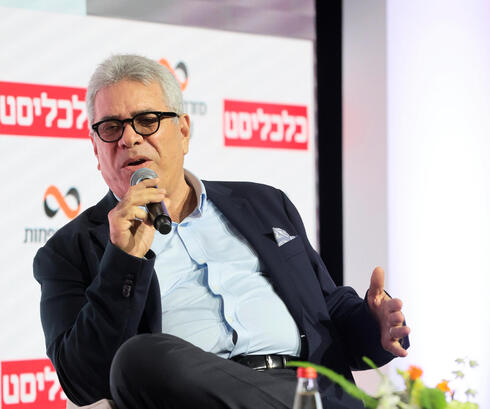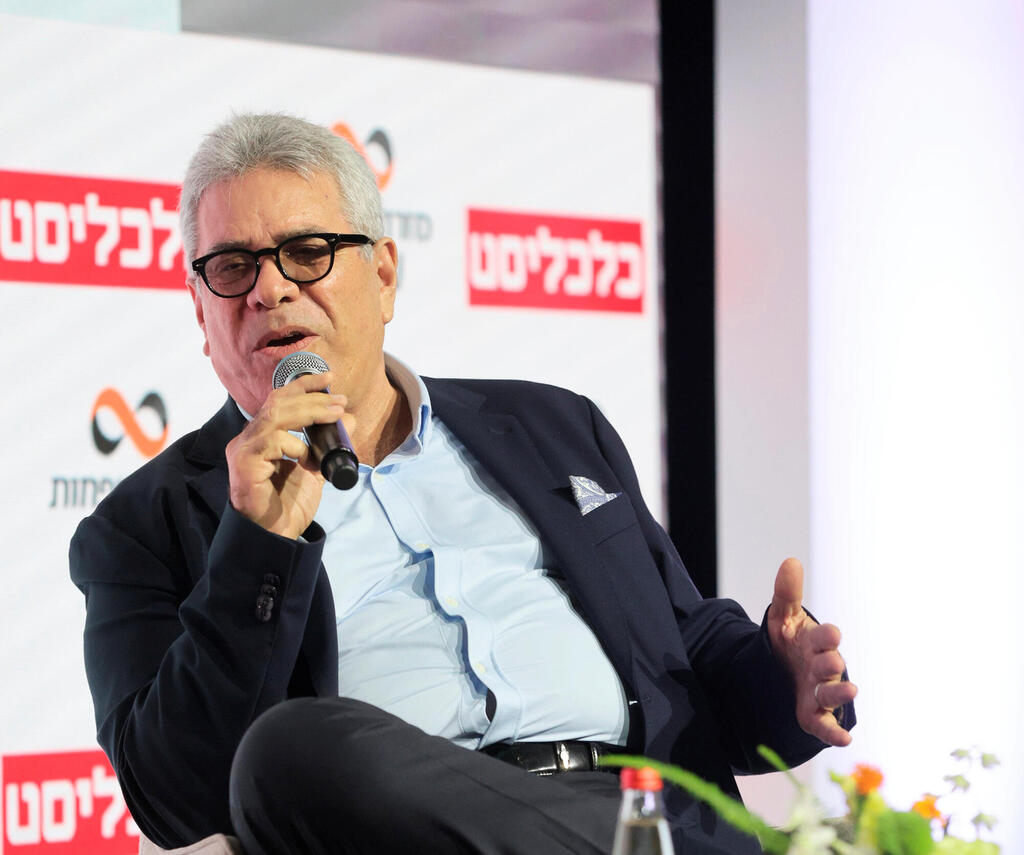
“Even Gaza had more renewable energy than Israel before the war”
Moshe Mamrud, CEO of Tadiran, was speaking at Calcalist's Growth Conference about the company's commitment to Israeli industry amidst a challenging business environment
At Calcalist's Growth Conference, Moshe Mamrud, CEO of Tadiran, discussed the company's commitment to Israeli industry amidst a challenging business environment. Tadiran, known for its innovative air conditioning solutions, is launching a new VRF production line and expanding into renewable energy. Despite regulatory hurdles and international competition, Mamrud remains optimistic about Tadiran's future and the potential for significant growth in both domestic and international markets.
In recent years, you have entered the field of renewable energy. You have had an air conditioner factory in Afula for almost 50 years. You are renewing activity in Israel at a time when many companies are withdrawing from the country. What are you doing and what is the rationale?
"The factory in Afula is very unique and high-quality in the production of air conditioners. When I purchased Tadiran in 2009, it was the highlight of the Carrier company. It was clear to everyone that I was going to close the factory, but I saw it as Tadiran’s number one asset. I saw the research and development (R&D), the capabilities, and the knowledge. Over time, this proved itself, and I invested more and more. We received great recognition for our abilities and innovation and we progressed, with the plant beginning to take larger shares of Tadiran's sales.
"These days, we are setting up a production line for advanced VRF type air conditioning systems under the Tadiran VRF Prime brand. Tadiran will be the first and only company in Israel to produce air conditioners of this type. The VRF system (Variable Refrigerant Flow) is an advanced technology for air conditioning that allows precise and efficient temperature control and energy consumption in each individual room. Until now, advanced VRF air conditioners were imported to Israel from Japan, Korea, China, and Europe."
You also entered the field of solar panels and relied on a Turkish supplier. A year ago, regardless of the Turkish boycott, you stopped and opened a factory in the north. Why?
"I strongly believe in the Israeli industry. When I said a few years ago that I was manufacturing in Israel, everyone asked why. Israel is very attractive in every way. It is true that the cost of labor is more expensive compared to China, but we are in a changing world. Once, the factory had thousands of people on the production lines; today, there is robotics and innovation. Israel is a start-up nation with efficient production, and we can outdo them all."
There is also regulation. MK Yisrael Eichler is delaying the transition to refrigerant gases in air conditioners.
"I didn't expect the state and regulation to help us, but I do expect it not to get in the way. I hope that after all the turmoil the country is in, it will improve. I'm optimistic, despite Yisrael Eichler."
Regarding renewable energy, what is your vision for the field that makes up almost 50% of your activity in Europe? There is a decrease in demand. Do you think that after the war there will be excess demand for activity in the field of renewable energy?
"Tadiran is an international player. In the solar field, demand in Europe has decreased recently. However, Europe is almost at 40% renewable energy on average, with the goal of reaching 60% by the end of the decade. This means there will be crazy demand. In 2022, there was great demand in Europe as a result of the war with Ukraine—the prices of gas and oil skyrocketed. Now, energy prices have fallen and demand has decreased. Today, countries aiming to reach 60% can only achieve this through incentives. If they reach even half of their goals, we will work non-stop. In the short term, Europe has declined, but I am convinced it will come back strong."
And what about Israel?
"It's a shame and disgrace. Israel is sitting at 10% renewable energy. Before the war, Gaza had more. We are at a very poor level of renewable energy, everything is stuck and not progressing. There is now an attempt to push regulation a bit so that we can progress and reach at least 20%. I am quiet and very content with the activities we have in Israel and Europe."














